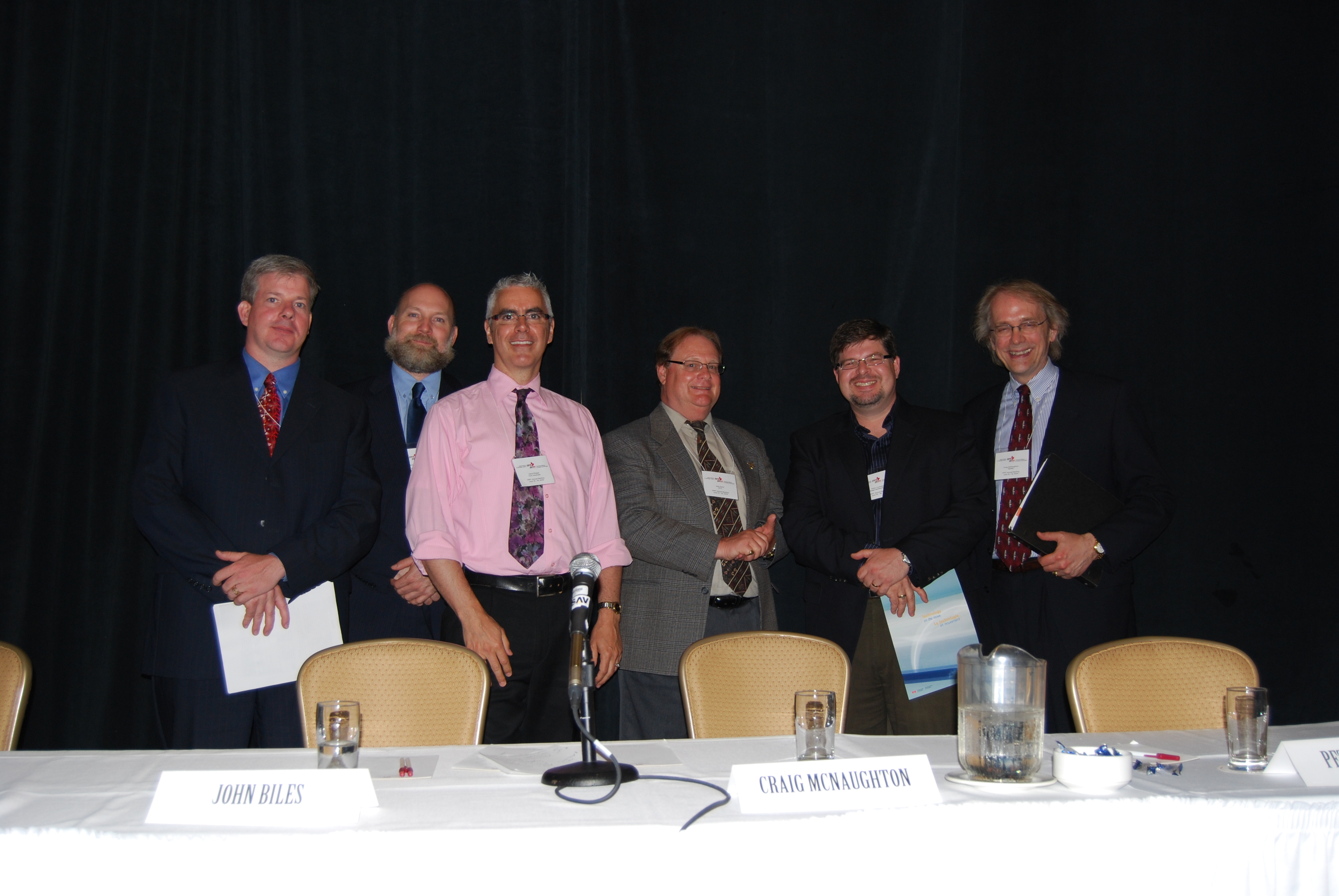
John Biles, Director of Partnerships and Knowledge Transfer for the Metropolis Project (on the left)
Craig McNaughton, Director of the Knowledge Mobilization and Program Integration Division at the Social Sciences and Humanities Research Council of Canada (on the right)
Peter N. Levesque, Director of Systems and Operations at Knowledge Mobilization Works (second from right)
David Phipps, Director, Research Services & Knowledge Exchange, York University and ResearchImpact (third from left)
What do all these guys have in common? We all shared the stage at the opening plenary panel at the annual meeting of the Federal Partners in Technology Transfer. “The Federal Partners in Technology Transfer (FPTT) initiative is a unique example of people in Canada’s federal science-based departments and agencies (SBDAs) working together to establish common approaches, practices and policies to effectively transfer research and technologies from government laboratories to the private sector”. The theme of the 2009 annual meeting was “Marketing and Mobilizing Your Technology” and ResearchImpact’s David Phipps was invited by FPTT to organize their first ever session on knowledge mobilization.
This session brought together perspectives on KM from the university (York), a federal funder (SSHRC), a long term (+17 years) project housed within a federal Ministry (Metropolis) and the private sector (Knowledge Mobilization Works!) so that technology transfer professionals could begin to appreciate connecting research to application outside of patents and licensing.
This session built on an earlier Mobilize This! blog entry about the differences between technology transfer and commercialization. Common themes that arose from our discussions were the need to connect research to application and we dug into the use of web 2.0 technologies and other tools to support this. We also had some discussion on evaluation (a recurring topic).
My feeling is that while there is interest and appreciation, the job of a technology transfer officer is specialized. The skills are transferable to a knowledge mobilization setting but unless the technology transfer office changes it’s mandate to embrace a broader concept of innovation and supports a broader range of partnerships with industry (beyond patents, licensing and company creation) technology transfer and knowledge mobilization will continue to be on opposite sides of the coin instead of on a continuum of research support services.
Thank you to FPTT for the invitation. This was ResearchImpact’s first opportunity to engage the technology transfer profession.